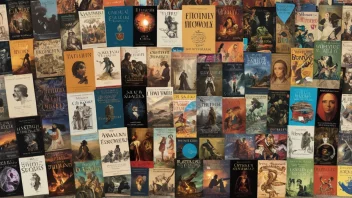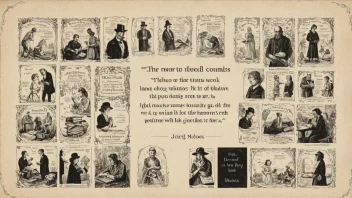Cultural heritage plays a pivotal role in shaping narratives, characters, and the overall depth of fiction writing. As authors draw from their unique backgrounds and traditions, they create stories that resonate with readers on multiple levels. This article delves into the significance of cultural heritage in fiction writing, exploring how it enriches narratives, fosters empathy, and preserves traditions.
1. Enhancing Character Development
When authors incorporate cultural heritage into their characters, they provide readers with a deeper understanding of motivations and behaviors. Characters shaped by their backgrounds often exhibit unique traits and perspectives. For example, a character from a specific cultural background may react differently to challenges based on their upbringing. This authenticity makes the characters relatable and memorable.
2. Creating Richer Narratives
Cultural heritage serves as a backdrop that enriches the story. Authors can weave traditional myths, folklore, or historical events into their plots, creating a multi-layered narrative. This not only adds depth but also invites readers to explore new worlds and ideas. For instance, novels that incorporate Indigenous myths can introduce readers to the values and beliefs of that culture while delivering an engaging story.
3. Fostering Empathy and Understanding
Stories rooted in cultural heritage can help bridge gaps between different communities. By reading about experiences and challenges faced by individuals from diverse backgrounds, readers can develop a greater sense of empathy. This understanding can inspire conversations about cultural differences and similarities, fostering a more inclusive society. Books like Chimamanda Ngozi Adichie's 'Americanah' allow readers to experience the complexities of navigating identity across cultures.
4. Preserving Traditions and Histories
Fiction writing can serve as a powerful medium for preserving cultural traditions and histories that may otherwise fade away. Authors who incorporate their heritage into their work often share stories that reflect the struggles, joys, and customs of their culture. This preservation is crucial for future generations, ensuring that rich histories are not lost. For example, works like 'Things Fall Apart' by Chinua Achebe provide insights into pre-colonial African life, preserving cultural narratives for years to come.
5. Inspiring Future Generations
When young authors see their cultural heritage represented in literature, it can motivate them to explore their own identities and stories. This representation encourages diversity in storytelling and inspires future generations to continue the tradition of sharing cultural narratives. Literature that reflects a wide array of experiences can empower young writers to embrace their backgrounds and tell their own stories, contributing to a richer literary landscape.
In conclusion, the significance of cultural heritage in fiction writing cannot be overstated. It enhances character development, creates richer narratives, fosters empathy, preserves traditions, and inspires future generations. By embracing and celebrating cultural backgrounds, authors not only contribute to a diverse literary canon but also invite readers to embark on journeys of understanding and appreciation. As literature continues to evolve, the importance of cultural heritage will undoubtedly remain a vital component of storytelling.






